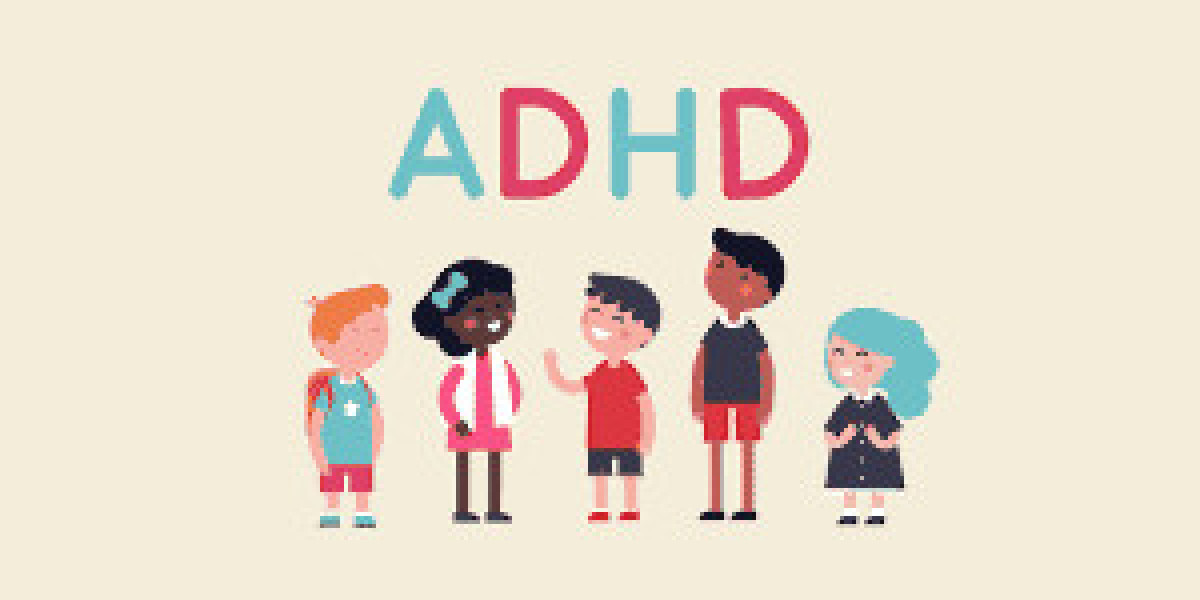A neurodevelopmental disorder, Attention Deficit Hyperactivity Disorder (ADHD) impacts millions of children and adults globally. ADHD, which is characterized by recurrent patterns of impulsivity, hyperactivity, and inattention, can have a major influence on a number of facets of daily life, such as relationships, employment, education, and self-worth. For early detection, effective treatment, and an improvement in general quality of life, it is essential to comprehend the most prevalent symptoms of ADHD and how they appear in real-world scenarios.
1. Inattention: The Challenge of Maintaining Concentration
Inattention is one of order adderall pills main signs of ADHD. Beyond sporadic forgetfulness or distraction, people with ADHD frequently struggle to stay focused on tasks, particularly those that are repetitive or demand a lot of mental work. How It Impacts Everyday Life: Obstacles at Work: Adults with ADHD may find it difficult to stay focused during lengthy meetings, organize their work, and meet deadlines. Poor productivity may result from their frequent project switching without finishing any of them. Academic Challenges: Children with ADHD sometimes struggle to pay attention in class, follow directions, and finish their assignments. They can have trouble keeping up with lessons, lose books, or forget homework. Household Responsibilities: Personal duties like remembering appointments, paying bills on time, and keeping the house tidy and orderly can all be impacted by inattention.
2. Impulsivity: Behaving Without Rational Thought
In ADHD, impulsivity is the propensity to act without thinking through the repercussions. This might show itself in a number of ways, such as cutting off discussions or making snap judgments. How It Impacts Everyday Life: Social Exchanges: People with ADHD may respond quickly before others have finished speaking, find it difficult to wait their turn in a discussion, or say things without thinking about how they may affect other people. Relationship tension or miscommunication may occasionally result from this. Financial Decisions: Impulsive behavior may result in improper budgeting, impulsive purchasing, or excessive spending. Over time, this may lead to financial instability. Impulsivity can occasionally result in risky behavior, including drug abuse, dangerous driving, and taking unwarranted chances in social or professional contexts.
3. Hyperactivity: The Requirement for Continuous Motion
One of the most buy ritalin online signs of ADHD, especially in kids, is hyperactivity. In adults, though, it could manifest as a lack of relaxation or restlessness.
How It Impacts Day-to-Day Living
Disruptions in the Classroom: It can be challenging for both the child and their peers to concentrate when they have ADHD since they may often get up from their chairs, talk too much, or find it difficult to be silent during class. Challenge Relaxing: Even in circumstances that call for composure, adults with ADHD may find it difficult to sit still for extended periods of time, feel restless all the time, and have a strong desire to move or fidget. Sleep Issues: Having trouble winding down at night due to hyperactivity can make it harder to fall or stay asleep, which can worsen symptoms of ADHD.
4. Forgetfulness: The Difficulty of Recalling Crucial Information
Memory problems are common in people with ADHD, especially short-term recollection. They might regularly forget chores, appointments, or even basic daily obligations. How It Impacts Day-to-Day Living Deadlines Missed: In both professional and academic contexts, forgetting crucial dates or deadlines can cause stress and impair performance. Lost Items People with ADHD frequently misplace keys, wallets, phones, or critical documents, which can lead to frustration and wasted time. Relationship Stress: Ignoring significant occasions, such anniversaries or birthdays, can cause loved ones to feel abandoned, which can have an impact on interpersonal relationships.
5. Ineffective Time Management and Delays
For people with ADHD, efficiently managing their time can be quite difficult. They may find themselves hurrying at the last minute since they frequently have trouble anticipating how long things will take. How It Impacts Day-to-Day Living. Chronic Lateness Having trouble managing your time can cause you to regularly arrive late for social gatherings, work, or school, which other people may find rude. Task Avoidance Feeling overburdened or unsure of where to begin are common causes of procrastination. Unfinished work and increased stress may result from this. Ineffective Work Habits People may switch between tasks without completing any of them, which results in frustration and inefficiency.
6. Organizational Difficulties
A lot of persons with Adderall Online have trouble keeping their daily lives structured and organized. This can be everything from a disorganized workstation to ineffective activity planning. How It Impacts Everyday Life Messy Living Spaces: It can be challenging to maintain an orderly house or office, which can result in clutter and make it harder to locate essential objects. Workplace Challenges Ineffective organization might lead to missed meetings, misplaced files, or inefficient task completion. Disorganized Thoughts: It can be difficult to express ideas accurately in both personal and professional contexts when one struggles to order their thoughts.
7. Emotional Dysregulation: Inability to Control Feelings
Extreme emotions are common in people with ADHD, and they may find it difficult to control how they react to joy, disappointment, or irritation How It Impacts Day-to-Day Living Mood Swings In both personal and professional relationships, abrupt emotional outbursts, impatience, or irritability can result in misunderstandings. Low Self-Esteem Many people with ADHD experience low self-esteem, particularly if they have been criticized for their symptoms all of their lives. Elevated Stress and Anxiety Having trouble controlling one's emotions can lead to elevated stress and anxiety, which can make day-to-day obstacles seem insurmountable.
8. Having Trouble Completing Tasks
For many people with ADHD, the difficulty lies in finishing tasks, not in starting them.How It Impacts Everyday Life Unfinished Tasks Individuals with ADHD frequently begin several projects but find it difficult to finish them, which causes them to feel frustrated and like failures.Lack of Follow-Through on Commitments They could neglect or become disinterested in their obligations, which can cause tension in both professional and friendship situations. Routine Difficulties It might be difficult to follow a set daily routine, which can result in erratic and chaotic schedules.
In conclusion
ADHD has an impact on a wide range of facets of daily life, including relationships, self-esteem, and performance at work and school. Although these symptoms can provide difficulties, the first step in creating treatment solutions is comprehending them. Tools including time management strategies, counseling, medication, and lifestyle modifications can help people with ADHD manage everyday life more skillfully. People with ADHD can utilize their abilities and succeed in both personal and professional contexts with the right support and care.









